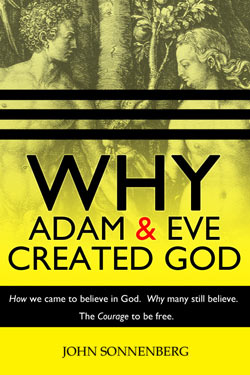Chapter 14 – Race of Believers
All people are believers. Some rational beliefs are necessary and good. But the willing acceptance of pure fiction should be avoided. Both types of beliefs come from the same place, but education, social support, and critical thinking separate can make one person less prone to accept the unbelievable. When we look back on our history, there is no race, no nation, no people, and no sex that is immune to blind faith, poor judgment, unbelievable opinions, and outright stupid logic. It is informative to look back at past beliefs because they illustrate how gullible all people are, how dangerous unfounded faith is, how difficult it was for people to see the errors of their convictions, and how some of the worst ideas continue to attract followers long after they are discredited.
Being a trusting, believing person isn’t a disease. It is natural, and everybody should realize they are human and they are prone to believing. For example, the brilliant inventor Thomas Edison had an outstand grasp of the sciences, but yet believed in telepathy. Here was one of the most analytical minds of his day, but yet he believed people could read the minds of others. This mental-telepathy fantasy has been around for thousands of years, and Edison fell for it hook-line-and sinker at the hands of a magician. There is not a shred of evidence to support telepathy and believers in it do not have the finely-tuned institutions like many religions. There are no telepathic churches. There are no communities of telepaths. And yet, Edison believed. When a man this bright can be taken in by such a foolish notion, it is no wonder that well-organized religions attract so many. Understanding that we have some type of “natural belief gene” can help us prepare defenses to make sure what we believe in is worthy of our trust.
This is only a short summary of this topic. To find out more, please get Why Adam and Eve Created God.

Leave a Reply
You must be logged in to post a comment.